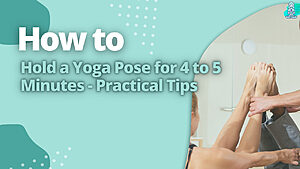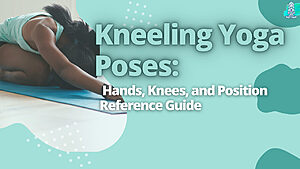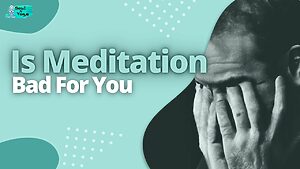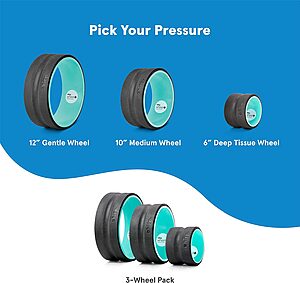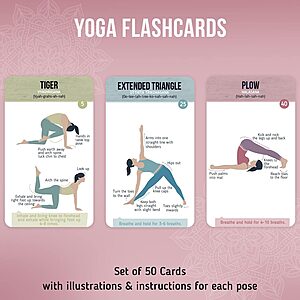Practicing mindfulness and meditation is becoming more and more popular. It’s now being taught in schools, corporations, and prisons.
Many studies have shown that mindfulness and meditation have numerous benefits. They can help treat anxiety, depression, and stress, and they even reduce the occurrence of migraines.
But can mindfulness and meditation change your life? Can they make you happier? Can they make you more successful? Can they make you a better person?
In this article, we’ll answer these questions and more.
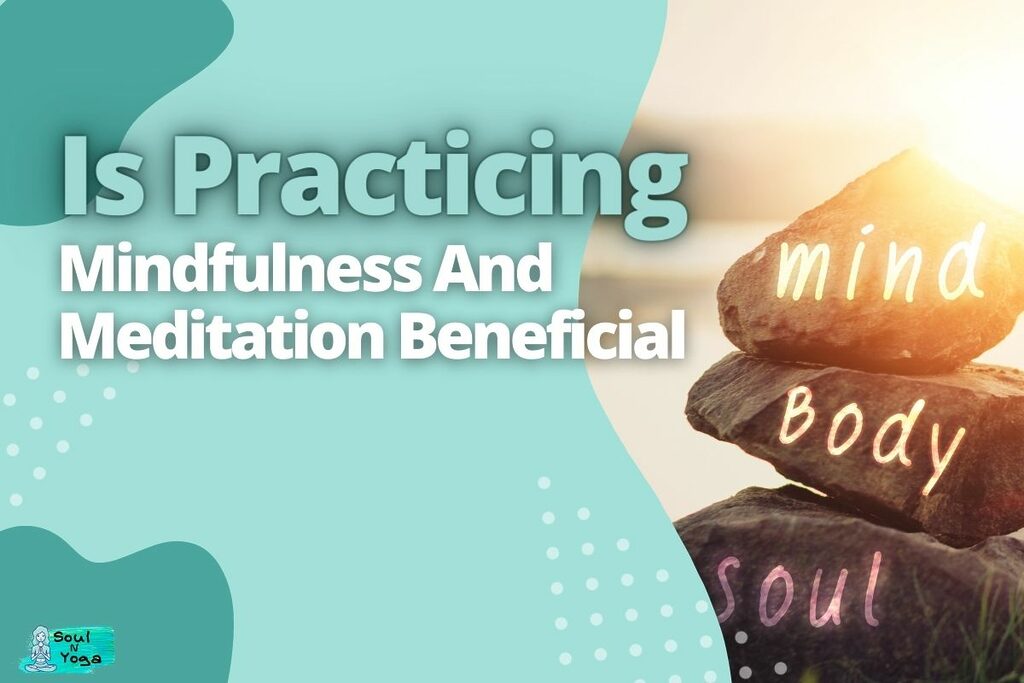
Here’s The Answer To Is Practicing Mindfulness And Meditation Beneficial
Practicing mindfulness and meditation is beneficial because it has been found to reduce stress and anxiety, and improve brain health, sleep, focus, and more.
Similarly, mindfulness and meditation have also been shown to improve depression, anxiety, and other mental health issues.
With regular mindfulness practice, you can develop the capacity to observe your thoughts and feelings without getting carried away by them.
Maintaining a positive outlook on life will lead to a greater sense of well-being and less anxiety. As a result, mindfulness can help you make healthier choices and improve the quality of your life.
Anxiety and stress levels can be reduced via the practice of mindfulness and meditation. This has been empirically demonstrated. These are benefits that can have a positive impact on your life.
What Are The Benefits Of Practicing Mindfulness And Meditation?
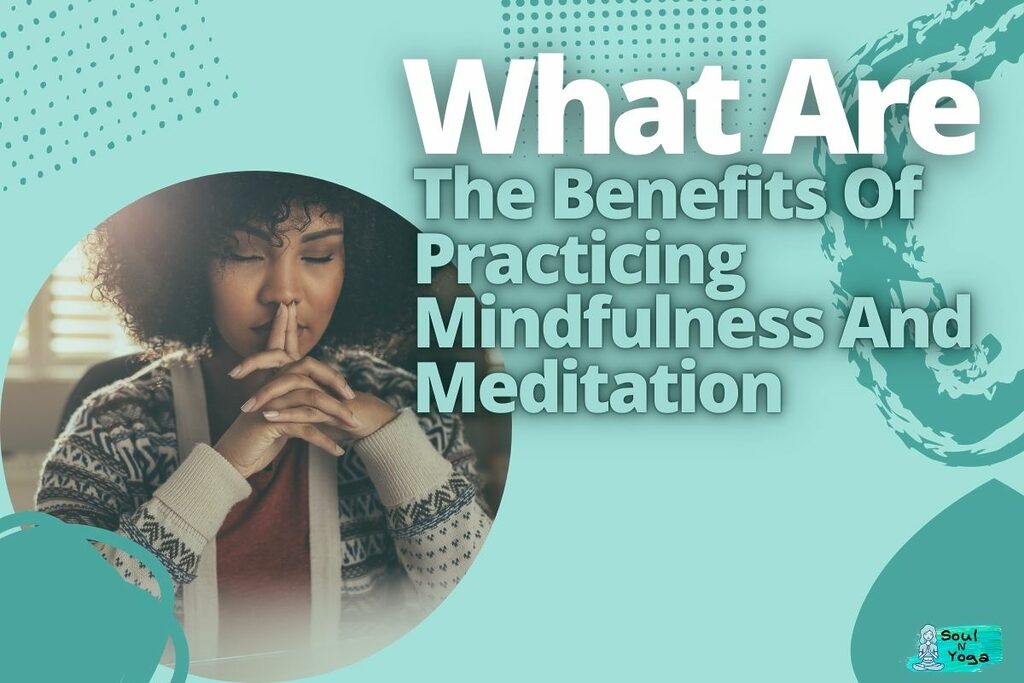
Mindfulness and meditation have a variety of health advantages, including the following:
- Boosting memory function
- Reducing stress and anxiety levels
- Strengthening emotional intelligence (EQ)
- Increasing focus and attention span
- Improving psychological well-being.
Boost Memory Function
As an attentive person, you pay attention to what’s happening in the world around you. As a result, your memory may suffer if you are not paying attention.
Our thoughts and worries can cause us to lose track of essential details like where we left our car or what was said during a meeting.
By practicing mindfulness regularly, we will be able to improve our ability to focus on the present moment, which may help us remember more information.
Reduce Stress And Anxiety Levels
Mindfulness meditation can be a great tool to help you reduce stress and anxiety. It’s been found that mindfulness meditation can help lower the overall stress levels in someone.
So it’s certainly beneficial for those seeking a new way of managing their emotions. Other studies have also shown that mindfulness meditation could reduce anxiety in people suffering from post-traumatic stress disorder (PTSD).
Strengthen Emotional Intelligence (EQ)
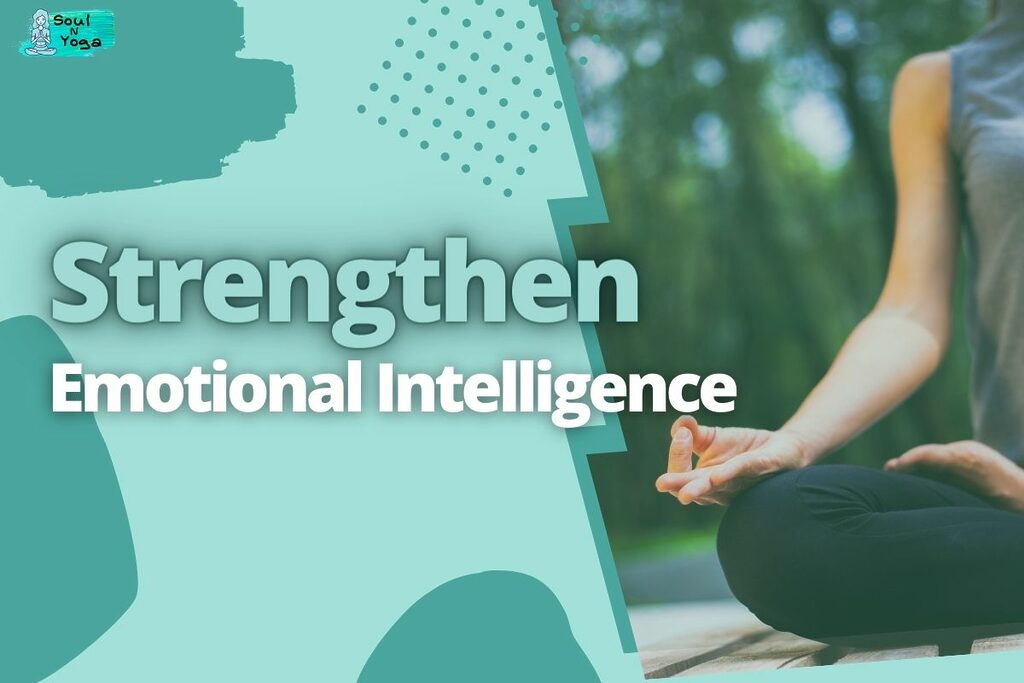
A person’s capacity to detect and control their own and others’ emotions is referred to as emotional intelligence (EQ). It helps you to communicate more effectively, empathize with others, and resolve conflicts.
It also helps you to understand yourself and others better. A person high in emotional intelligence can control their impulses and be flexible, adaptable, and compassionate when dealing with difficult situations or people.
Practicing mindfulness can help improve your EQ by
- Increasing your ability to manage stress;
- Strengthening attention skills;
- Improving impulse control;
- Raising self-awareness;
- Decreasing anxiety;
- Improving sleep quality;
- Reducing feelings of depression or loneliness.
Increase Focus And Attention Span
- Focus on one thing at a time.
- Focus on the present moment.
- Focus on your breathing.
- Focus on your senses, such as sight and sound.
- Use a mantra, or repeat words or phrases like “I am,” “I’m calm,” or “Om.” The goal is to keep you focused despite distractions and not let them pull you away from what you’re doing (like meditation). A mantra can also be used while exercising or doing other activities requiring focus and attention, such as playing an instrument or practicing sports skills.
- Focusing on an object helps anchor your mind, so it doesn’t wander from thought to thought without purpose (called “monkey mind”). This technique may help improve focus during meditation sessions by providing something concrete for the mind to hold onto when it starts feeling foggy or drowsy over time, a classic example of mindfulness in action!
Improve Psychological Well-being
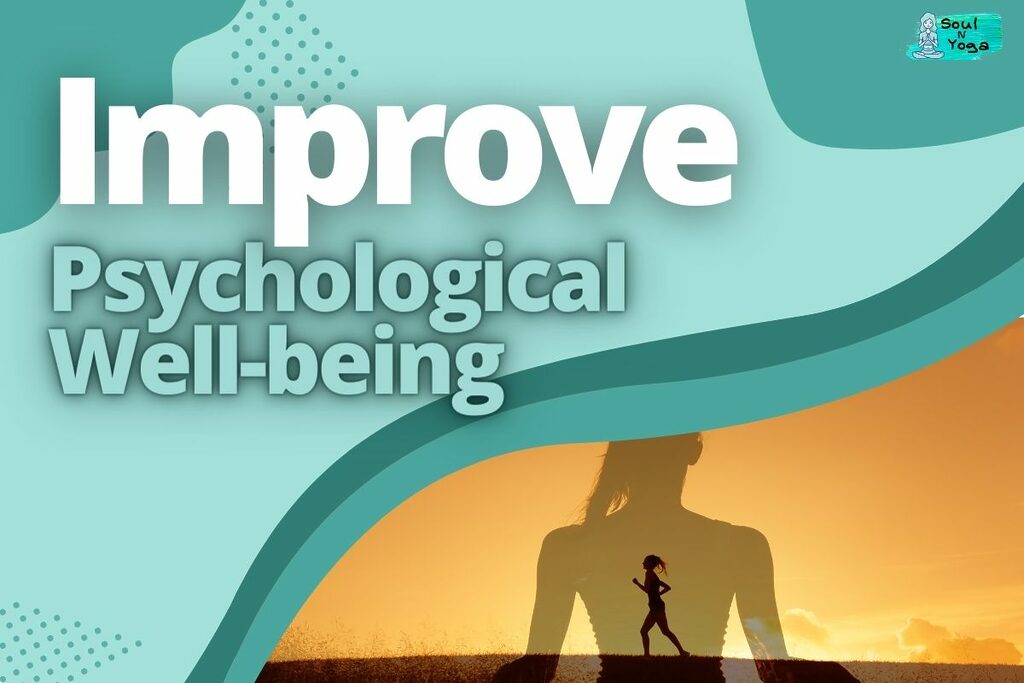
Practicing mindfulness and meditation is beneficial for your psychological well-being.
- It improves your mental health, which refers to how you feel about yourself and your life.
- It improves your emotional well-being, which refers to how you react to things around you.
- It improves your physical well-being, which refers to how healthy you are physically.
- It improves your spiritual well-being, which refers to how connected or disconnected you are from others and natural you feel in everyday life.
- And lastly, it improves social well-being, which refers to reaching out and connecting with other people more frequently than usual (or less frequently).
Quality of Life
Quality of life is defined as how well you can enjoy life. It might be easy to think that quality of life is only about money, health, or happiness, but this isn’t the case.
Quality of life is broad and encompasses many aspects of your life, such as relationships with friends, family, and loved ones, work/career; physical health; mental health; personal development, and learning new things.
Therefore, practicing mindfulness and meditation can have a positive impact on your quality of life by helping you in the following areas:
- Work/Career – A mindful approach at work will help us become more productive and satisfied with our daily activities. We’ll be able to focus on our tasks with clarity so that we don’t waste time worrying about problems outside our control or what other people think about us.
Can One Get These Benefits Without Practicing Mindfulness And Meditation?
Yes, you can get these benefits without practicing mindfulness and meditation. However, it is much easier to do so with the help of a teacher or guide.
It’s possible to improve your health and well-being by just sitting in a quiet room and noticing your thoughts, but it requires some practice to master this technique. I know because I have tried it many times before, finding my way into regular seated meditation practices that help me stay present throughout my day.
Will Practicing Mindfulness And Meditation Benefit Everyone?
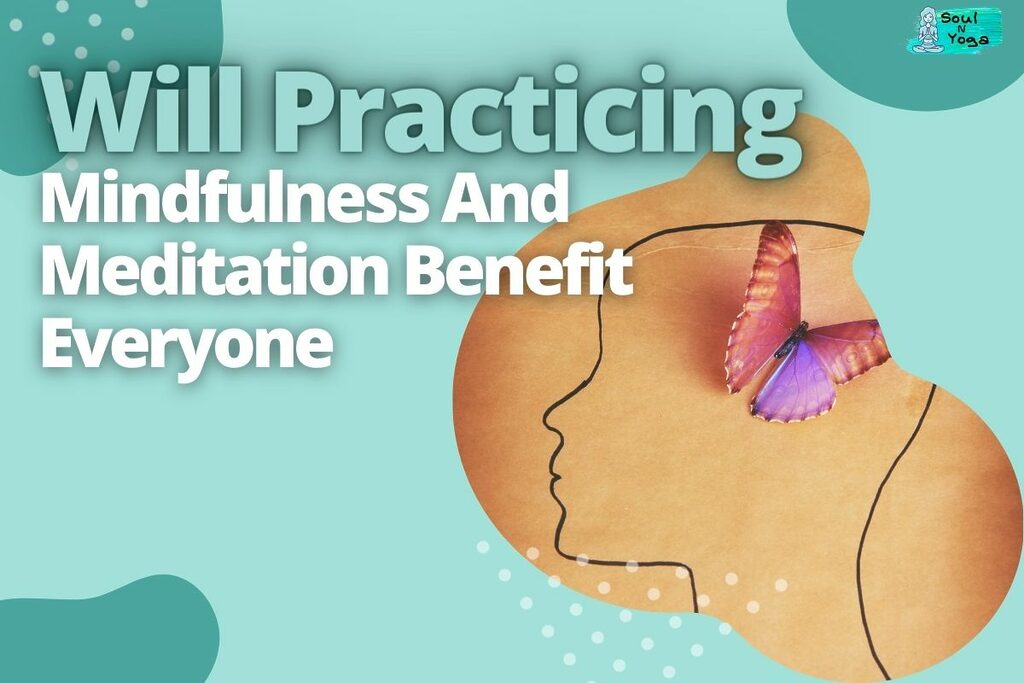
Mindfulness and meditation can benefit everyone, but not everyone will experience the benefits. Some people may experience adverse side effects.
Others may experience no positive results or even negative ones. And some might feel absolutely nothing at all. The truth is that mindfulness and meditation are individual practices: what works for one person might not work for another.
That’s because each person has their own thoughts, feelings, and experiences that affect how they respond to these practices, even if you do them the same way someone else does them!
When deciding if mindfulness and meditation are right for you, it’s important to remember this: just because it works well for your friend doesn’t mean it will work well for you too.
The only way to know whether these activities are suitable for *you* is by trying them out yourself (and then maybe sharing them with others).
How Long Does Practicing Mindfulness And Meditation Take To Accumulate Benefits?
Some things to consider include how often and for how long you practice and what kind of results you’re hoping to achieve.
- Some benefits, such as stress reduction, can be seen almost immediately. Other uses, such as increased compassion, may take longer to accumulate.
- A recent study found that eight-week mindfulness training improved significantly in several areas, including executive functioning and positive emotions.
- Another study found that a mindfulness program was as effective as cognitive behavioral therapy in treating anxiety and depression.
A meta-analysis of the effects of meditation found that it can lead to significant improvements in several areas, including stress, anxiety, pain, and depression.
Practicing mindfulness and meditation may lead to significant gains in many areas of your life, even if you don’t experience immediate results.
Do People Who Practice Mindfulness More Often Report Better Mental Health?
You can get the benefits of mindfulness and meditation on your mental health no matter how much or how little you practice. Mindfulness has been linked to improved mental health in numerous research.
The benefits of mindfulness are not limited to just one group of people; it can benefit anyone from all different backgrounds and walks of life.
Mindfulness has been shown to improve mental health in patients with depression, anxiety disorders, chronic pain, substance abuse problems, and other conditions.
It can also help with conditions related to ageing, such as dementia, by reducing the feelings of stress associated with these types of illnesses.
Are There Risks Associated With Practicing Mindfulness And Meditation?
Some risks are associated with practicing mindfulness and meditation, but they’re usually not serious.
If you notice that these are becoming a problem for you, it’s best to stop meditating until the side effects subside.
If your mind wanders during your practice, this is very normal! Then don’t feel bad about yourself; just bring it back to the present moment. And if it’s hard for you to do that? Practice makes perfect!
Risks are usually associated with people with cognitive flexibility issues or problems with the area of the brain that controls mindfulness.
For most people, the risks are minimal, and the benefits, such as greater reductions in stress, healing from psychological distress, and living a healthier life, far outweigh the risks.
Is It Possible To Experience Any Side Effects From Practicing Mindfulness?
Some people may experience side effects such as being tired, drowsy, or even sick (if you have a sensitive stomach). Mindfulness is a safe practice and does not have any risks or dangers associated with it.
It is not a drug, treatment, or method, so you can’t overdose on it like medication. It does not involve hypnosis or meditation as part of its practice, so it’s also not like those things.
Mindfulness has become popular in mainstream culture lately because of the many benefits that have been shown by science to come with this type of meditation (more on those later).
How Do You Practice Mindfulness When You’re Not Busy?
It’s easy to think that you need to do mindfulness when you have time on your hands, but this isn’t true. You can practice mindfulness in the most mundane situations, like eating lunch or taking a break from work.
For example, focus on the moment and take time to breathe before eating your food. This will help aid digestion and keep hunger at bay.
Getting out of your seat isn’t necessary! Everyday actions like showering and jogging can be used to cultivate mindfulness.
You may find it strange the first time you do it, but as you grow used to it and do it more frequently, it becomes second nature to you (both are essential processes).
What Are Some Tips For Practicing Mindfulness And Meditation?
- If you’re committing to a meditation practice, try to meditate at least three times per week.
- You should be in a peaceful and comfortable state of mind when meditating. Try to find a quiet place where you won’t be disturbed by other people or noises, such as a park or backyard.
- Begin with a few minutes of mindful breathing, focusing on the sensation of breathing in and out of your nose. Then bring awareness to the rest of your body, any parts that may be tense or tight, and relax them one at a time.
Conclusion
This blog post will discuss whether practicing mindfulness and meditation is beneficial. It is crucial to understand the difference between mindfulness and meditation.
With mindfulness, we pay attention to the present moment and what is happening around us. With meditation, we are training our brains to control the mind.
The mind begins to slow down and calm by paying attention to what is happening around us. Mindfulness and meditation are both great for our health and well-being.
Regular practice of mindfulness and meditation can help lead to lower rates of anxiety and depression, as well as improve sleep. It may even assist you in managing stress and enhancing your general well-being.
In other words, now is a fantastic moment to give mindfulness or meditation a shot for yourself. With little to no delay, you will begin to reap the benefits. Thanks for reading, and be sure to check back for more helpful blog posts like this one.
Frequently Asked Questions
How can you practice mindfulness effectively?
It means to be mindful to pay attention to the here and now. It’s about observing your thoughts and feelings without judging them. It involves staying focused on what’s happening in the here and now. The first step to practicing mindfulness is being mindful of your breathing, which allows you to focus on one thing for at least a few moments.
Will Practicing Mindfulness And Meditation Benefit My Relationship?
Yes! Mindfulness and meditation lead to a better relationship. Mindfulness and meditation help you to be present in the moment, which promotes more openness and acceptance between people. When you’re mindful, you can also identify negative patterns of thinking or behavior that may be causing issues in your life.
How Do I Know If I’m Practicing Mindfulness And Meditation Correctly?
The best way to tell if you’re practicing mindfulness and meditation correctly is to ask yourself if you feel a sense of calm, peace, or relaxation after each practice. If so, you’re on the right path.
How Do I Incorporate Mindfulness And Meditation Into My Everyday Life?
There are many ways you can incorporate mindfulness and meditation into your everyday life. For example, you can take a few minutes each day to breathe and meditate to relax and calm your mind. Mindfulness can also be practiced while peaceful music is playing or by taking a few minutes out of your day to sit back and breathe.
My name is Mugen Seki, and I’m a painter and yoga enthusiast who is passionate about bringing together art and exercise in ways that help people connect with their inner selves. When I’m not painting, I’m practicing yoga. And when I’m not doing either of those things, I’m usually thinking about them.
- How to Hold a Yoga Pose for 4 to 5 Minutes – Practical Tips
- A Guide to Finding the Perfect Yoga Mat for Carpet Floors
- Kneeling Yoga Poses: Hands, Knees, and Position Reference Guide
- Is Meditation Bad For Christians (The Surprising Answer)
- Is Meditation Bad For You (Don’t Believe Everything)
- Will I Get Better At Meditation (Understand The Secret)


